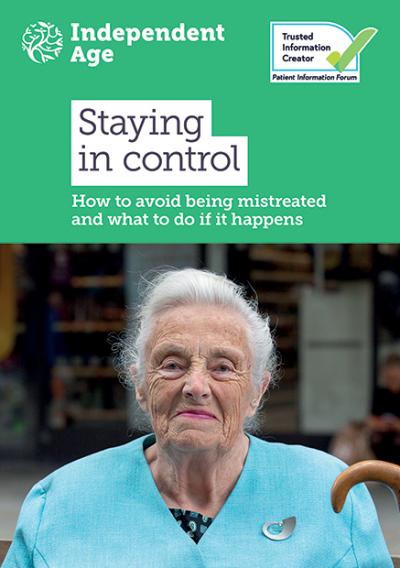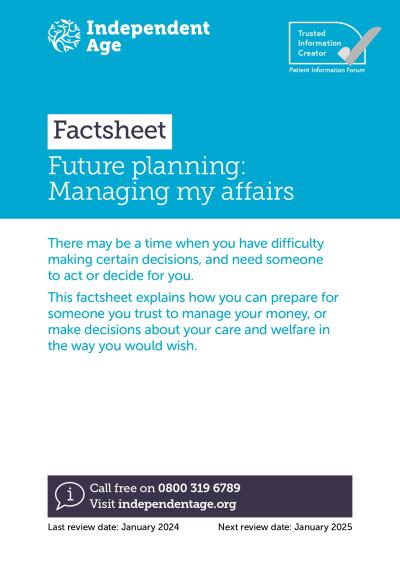Related publications

Staying in control

Everyone has the right to live in safety, free from abuse, harm and neglect. Harm can take many forms, but financial abuse, also known as economic abuse, is when someone causes you harm by controlling or mishandling your finances or assets. Abuse is never acceptable. There is action you can take to protect yourself and help available if you need it.
If someone causes you harm or distress by misusing or controlling your finances, this is financial abuse. This can include theft, scams or someone pressuring you to use your money in a way you don’t want to. Financial abuse might happen once or many times. It can also happen at the same time as other kinds of abuse – see our webpage Protecting yourself against harm.
People responsible for abuse often take advantage of a special relationship. They may be a friend or family member or even a paid carer. It is also possible that you do not know the person who is financially abusing you. Whatever the situation, financial abuse should not be tolerated.
Anyone can be at risk of financial abuse. It is not a reflection on your intelligence or your worth. Some people may be more vulnerable – for example, if you are isolated and have little contact with family or friends, or if you have dementia or difficulty communicating. You may also be at risk if you have a learning disability, or if you are sight or hearing impaired.
It’s not your fault, and you can put a stop to it.
Mary’s niece, Elizabeth, needed a place to stay after losing her job, but she has now lived in Mary’s flat for two months without paying rent. When Mary asks Elizabeth to move out so that she has more space, Elizabeth makes excuses and avoids conversations. This is an example of misuse of resources. Mary may want to consult a close friend or family member for advice before speaking to Elizabeth about her plans to move out. The friend may even be able to speak to Elizabeth with her, for added support during the conversation. For advice on talking about difficult subjects, see our webpage Practical tips for sensitive conversations. |
Jonathan’s neighbour sometimes comes over to help with the shopping. After the last few visits, Jonathan has noticed notes missing from his wallet. This is an example of theft. Jonathan can get in touch with Hourglass for advice about reporting financial abuse, or he can contact our Helpline. He can also report his suspicions to the police. Jonathan should also find someone he trusts to help with his shopping. If he lives in England, he may even be able to get help with shopping from a volunteer with his local Age UK. |
Annie is happy in her home, but her adult children are pressuring her to sell it, insisting that she would be more comfortable in a smaller, less-expensive home. She feels uncomfortable about it, but when she asks them to stop, they ignore her. This is an example of coercion. Annie might want to schedule a conversation with her children where she can lay out her concerns and explain that she does not intend to move out of her home. It may be helpful for her to have a friend or even an advocate present for the conversation – for more information about advocacy, see our webpage Independent advocacy. |
If you notice any of the following, it is possible you are being financially abused:
If you have experienced financial abuse, there are organisations that can help:
You can also report financial abuse to your GP or other NHS healthcare provider, or adult social care team. If you report it to your adult social care team, a social worker will speak with you about ways to resolve the situation. If you are still at risk of abuse, they will start a safeguarding enquiry which could be a conversation or a more formal course of action involving other agencies. If a crime has been committed, the police may get involved.
If you think a crime has been committed, you can report it to your local police by calling 101.
It is not always possible to prevent financial abuse before it happens, but there are steps you can take to be more aware:
If there comes a time when you are unable to make your own decisions, you can arrange for someone you trust to make decisions on your behalf.
A lasting power of attorney is a legal document that gives someone you trust the right to make decisions about your money and property and/or your health and welfare. Find out more on our webpage Power of attorney.
If you wish to make statements about your future care preferences, you can set up an Advance Decision or an Advance Statement. More information is available on our webpage Advance decisions and advance statements.